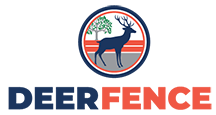A Field Test For CWD In-the-Works
Posted on June 19 2019
ST. PAUL — Minnesota hunters and farmers could soon carry handheld tools to test deer for fatal brain disease in the field.
In labs across the University of Minnesota Twin Cities campus, scientists are months away from making that a reality.
After lawmakers and the governor approved $1.8 million to fund the creation of a test to detect chronic wasting disease within hours, rather than days, a team of veterinary experts, microbiologists, genomics professors and engineers started a two-year timeline to create a breakthrough tool to test for the disease.
“This is a clear threat to deer heritage. I hate the fact that deer are being labeled as zombies,”University of Minnesota Veterinary and Biomedical Sciences Professor Peter Larsen told members of the Legislative-Citizen Commission on Minnesota Resources on Monday, June 17. Some have described the malformed prion protein disease as a "zombie-like" condition. “We need new tools to fight that disease."
The fatal brain disease affects deer, caribou, reindeer, elk and moose. And scientists worry that the disease could transfer from deer to humans. Some studies have shown that primates, like monkeys, that eat meat infected with the disease or come into contact with infected body parts can contract CWD.
CWD has been found in 26 states as well as Canada, several Scandinavian countries and parts of Asia. No cases of CWD have been reported in humans.
And while tests exist to detect CWD, they take about two weeks and are conducted on deer that have already died. The test is helpful, scientists said, but a quicker tool that could detect the disease in live animals would help hunters or others more quickly determine if they can butcher and eat the animals.
“When deer hunting season rolls around, 50,000 deer might be shot in Minnesota alone and we think it’s good medicine that a lot of those deer get tested,” Jeremy Schefers, an assistant professor at the University who runs the CWD testing lab.
The Department of Natural Resources tests wild deer in areas where CWD has been reported. But that likely misses infected deer that have traveled away from those areas, Schefers said.
If hunters or others unknowingly butcher and eat an infected deer, the prion proteins that cause the disease could bind to metals and other materials and live on for years while continuing to spread CWD. The Centers for Disease Control and Prevention advises against eating meat from CWD-infected animals.
The university last month also launched a program to respond to the disease's spread and possible animal-to-human transmission. And the DNR in March rolled out a plan to improve the detection and prevention of the disease in farmed and wild deer.
Schefers said getting a prototype test completed will help the state take another step to roll back the spread of CWD.
“We need to stop it and then contain it and then hopefully push it backward," Schefers said. "And we can’t push it back without better tools."
Re-posted from Red Wing Republican Eagle. Written by Dana Ferguson.
